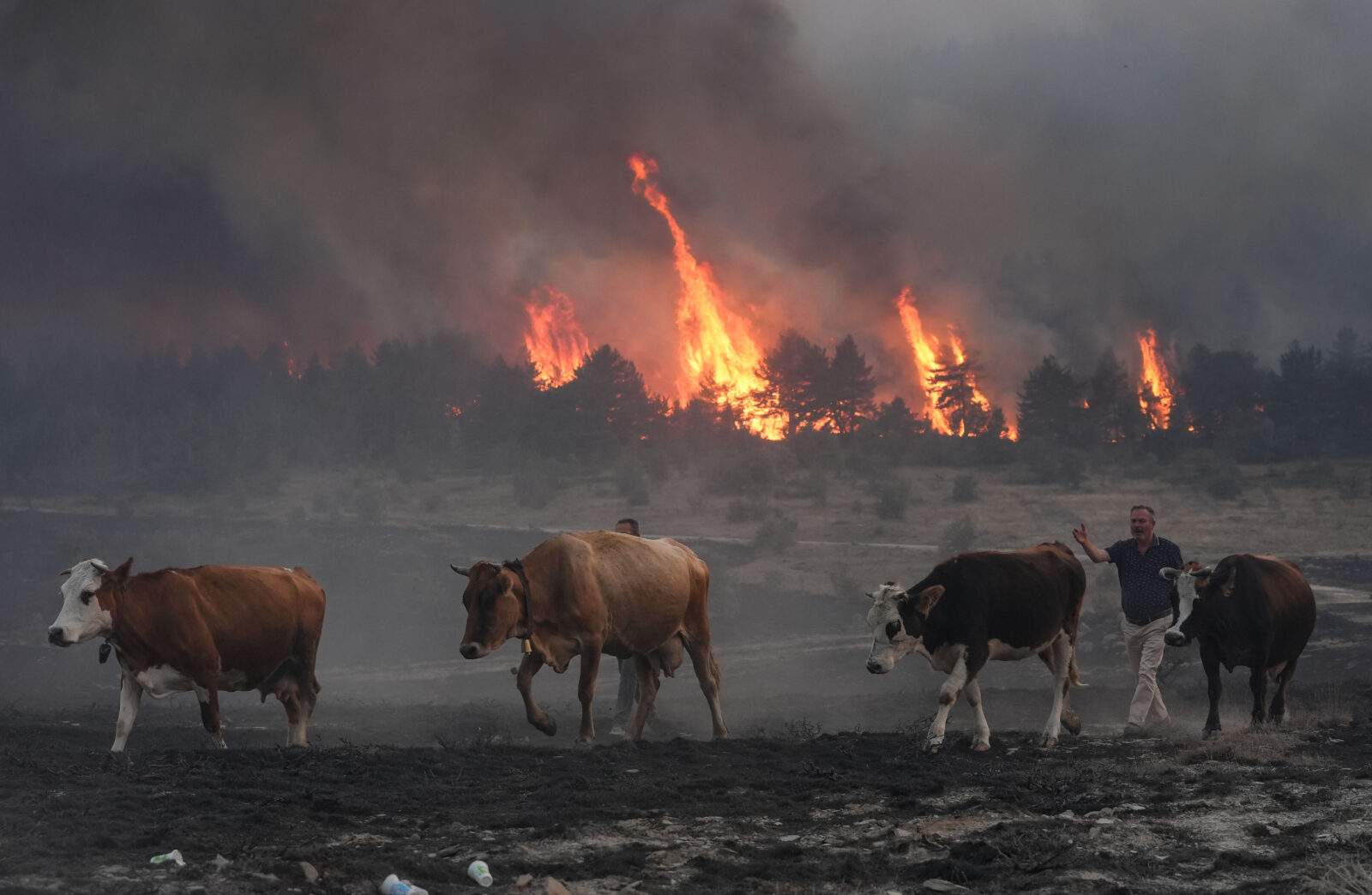Climate crisis in Türkiye: Addressing rising threat of extreme weather
 Firefighter extinguishing the forest fire that broke out in Balikliova in Izmir's Urla district, Türkiye, Aug. 17, 2024. (AA Photo)
Firefighter extinguishing the forest fire that broke out in Balikliova in Izmir's Urla district, Türkiye, Aug. 17, 2024. (AA Photo)
The climate crisis in Türkiye is escalating, with heat-related deaths expected to rise sharply by the end of the century if current policies remain unchanged
A recent study in The Lancet Public Health reveals that Europe, including Türkiye, could see a significant increase in heat-related fatalities because of global warming. Positioned in the Eastern Mediterranean Basin – a region particularly vulnerable to climate change –Türkiye is at the forefront of this emerging threat.
Current global temperature trends suggest a 3 degrees Celsius (37.74 degrees Fahrenheit) rise by 2100, leading to a tripling of heat-related deaths in Europe. Southern regions, including Türkiye, will experience the greatest impact.
The clear effects of climate change in Türkiye call for the implementation of stronger climate policies and infrastructure improvements to protect its population, particularly the elderly, who are most vulnerable to extreme heat.
Türkiye’s implementation of climate change policy
In 2021, Türkiye ratified the Paris Agreement, committing to achieve net-zero emissions by 2053. Despite this commitment, the country’s progress in implementing effective climate policies has been slow.
The Climate Change Performance Index (CCPI) 2024 ranks Türkiye 56th out of 60 countries, indicating its low performance in climate action. This ranking exposes the gaps in Türkiye’s current climate policies and points to the need for a more ambitious approach to reducing greenhouse gas (GHG) emissions.
Minister of Environment, Urbanization and Climate Change Mehmet Ozhaseki announced the preparation of a new climate law aimed at addressing these challenges.
“We are committed to combating climate change and have joined the Paris Climate Agreement. We are preparing climate legislation to take decisive steps against global warming,” Ozhaseki stated.
However, the slow pace of policy development raises concerns about Türkiye’s ability to meet its climate commitments.

Extreme weather product of climate crisis in Türkiye
Türkiye already feels the effects of climate change. In recent years, the country has faced extreme weather events, including devastating wildfires in the southern and southwestern regions, severe floods in the north, and increasingly frequent and intense heatwaves.
These events have caused a significant loss of life and property, demonstrating the urgent need for effective climate action.
The summer of 2024 saw one of the most severe heatwaves in Türkiye’s history, with temperatures soaring well above seasonal norms. This heatwave, driven by the ongoing climate crisis, led to widespread power outages and water shortages in several cities.
The government’s response, although quick in some areas, revealed significant gaps in infrastructure and preparedness, particularly in regions already struggling with aging populations and inadequate public services.

Turkish municipalities take action against climate change in Türkiye
While Türkiye’s national climate policies have faced criticism for lacking ambition, several municipalities have taken proactive steps to address climate change at the local level.
For example, Izmir’s Sustainable Energy and Climate Action Plan, supported by the European Bank for Reconstruction and Development, aims to make the city more resilient to the impacts of climate change. Such local initiatives play a crucial role in building climate resilience and ensuring a sustainable future for the country.
International cooperation is also essential for addressing the global nature of climate change. Türkiye’s participation in international agreements, such as the Paris Agreement, and its collaboration with the European Union on climate issues, are positive steps.
The projected increase in heat-related deaths and the ongoing climate challenges in Türkiye demand immediate action on climate change. The upcoming climate law, once implemented, will be a critical step toward achieving Türkiye’s climate goals.
However, this must be accompanied by a broader shift in policy and practice, including a clear plan for phasing out fossil fuels, enhancing infrastructure, and protecting vulnerable populations from the impacts of extreme weather.



